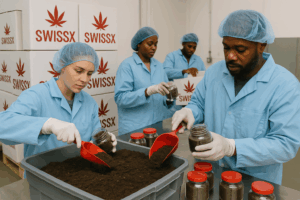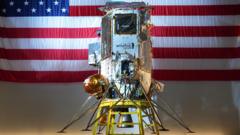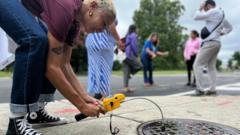Efforts by groups like Carnicycle and 2nd Closet are paving the way for a greener celebration, reducing waste and promoting recycling among participants.
**Trinidad Carnival Takes Steps Towards Sustainability**

**Trinidad Carnival Takes Steps Towards Sustainability**
As the famed Trinidad Carnival continues to capture global attention, local initiatives strive to mitigate its environmental impact.
In the heart of Trinidad, where the vibrant Carnival stands proudly as “the greatest show on Earth,” the effects of exuberant celebrations are becoming increasingly scrutinized for their environmental footprint. Each year, the spectacle produces an alarming 3.4 tonnes of waste, according to Carnicycle, a grassroots initiative dedicated to transforming the festivities into a more sustainable event. Danii McLetchie, co-founder of Carnicycle, acknowledges the duality of Carnival—a vital cultural event overshadowed by its negative ecological implications, from textile waste to event-related emissions.
The environmental cost of Carnival costumes is significant; it's estimated that one costume bra can produce approximately 37.68 kilograms (83 pounds) of CO2 emissions, based on calculations shared by McLetchie. While these startling figures are pending third-party verification, the sheer volume of participants—often numbering in the tens of thousands—underscores the urgency for change.
To combat waste, Carnicycle has implemented an innovative recycling program that collects discarded costumes, once destined for landfills or incineration. “Last year, we salvaged around 10,000 costume materials,” McLetchie said, explaining the labor-intensive process of repurposing costumes to retain usable materials like feathers and beads. These salvaged items are then sold to costume designers, ravers, and even within the burlesque community, providing a second life for what would otherwise be waste.
In tandem with Carnicycle's mission, Aliyah Clarke and Kaleen Sanois launched a pop-up thrift shop named 2nd Closet, which encourages the sale and reuse of pre-owned clothing. The duo also produces video tutorials on transforming Carnival costumes into stylish beachwear and daily outfits, sharing sustainable fashion ideas under the catchy title "Tipsy Tuesday."
Additionally, the efforts stretch beyond individual outfits to enhance the overall Carnival experience. Events like Fete with the Saints have introduced biodegradable utensils and reusable cups to minimize single-use plastics. Supported by “bin detectives”—volunteers tasked with ensuring proper recycling—these initiatives reportedly captured more recyclables than in previous years. The collaborative effort achieved a significant milestone, reportedly preventing over one million single-use plastic items from entering landfills in the past three years.
As community leaders like Joseph Hadad affirm, these green initiatives, while more labor-intensive and costly, have not diminished the spirited atmosphere that embodies Trinidad's Carnival. In fact, for attendees such as Roland Riley, the embrace of sustainability in celebration is not only welcomed but celebrated—a reflection of both pride in cultural heritage and responsibility towards the environment.
The environmental cost of Carnival costumes is significant; it's estimated that one costume bra can produce approximately 37.68 kilograms (83 pounds) of CO2 emissions, based on calculations shared by McLetchie. While these startling figures are pending third-party verification, the sheer volume of participants—often numbering in the tens of thousands—underscores the urgency for change.
To combat waste, Carnicycle has implemented an innovative recycling program that collects discarded costumes, once destined for landfills or incineration. “Last year, we salvaged around 10,000 costume materials,” McLetchie said, explaining the labor-intensive process of repurposing costumes to retain usable materials like feathers and beads. These salvaged items are then sold to costume designers, ravers, and even within the burlesque community, providing a second life for what would otherwise be waste.
In tandem with Carnicycle's mission, Aliyah Clarke and Kaleen Sanois launched a pop-up thrift shop named 2nd Closet, which encourages the sale and reuse of pre-owned clothing. The duo also produces video tutorials on transforming Carnival costumes into stylish beachwear and daily outfits, sharing sustainable fashion ideas under the catchy title "Tipsy Tuesday."
Additionally, the efforts stretch beyond individual outfits to enhance the overall Carnival experience. Events like Fete with the Saints have introduced biodegradable utensils and reusable cups to minimize single-use plastics. Supported by “bin detectives”—volunteers tasked with ensuring proper recycling—these initiatives reportedly captured more recyclables than in previous years. The collaborative effort achieved a significant milestone, reportedly preventing over one million single-use plastic items from entering landfills in the past three years.
As community leaders like Joseph Hadad affirm, these green initiatives, while more labor-intensive and costly, have not diminished the spirited atmosphere that embodies Trinidad's Carnival. In fact, for attendees such as Roland Riley, the embrace of sustainability in celebration is not only welcomed but celebrated—a reflection of both pride in cultural heritage and responsibility towards the environment.























